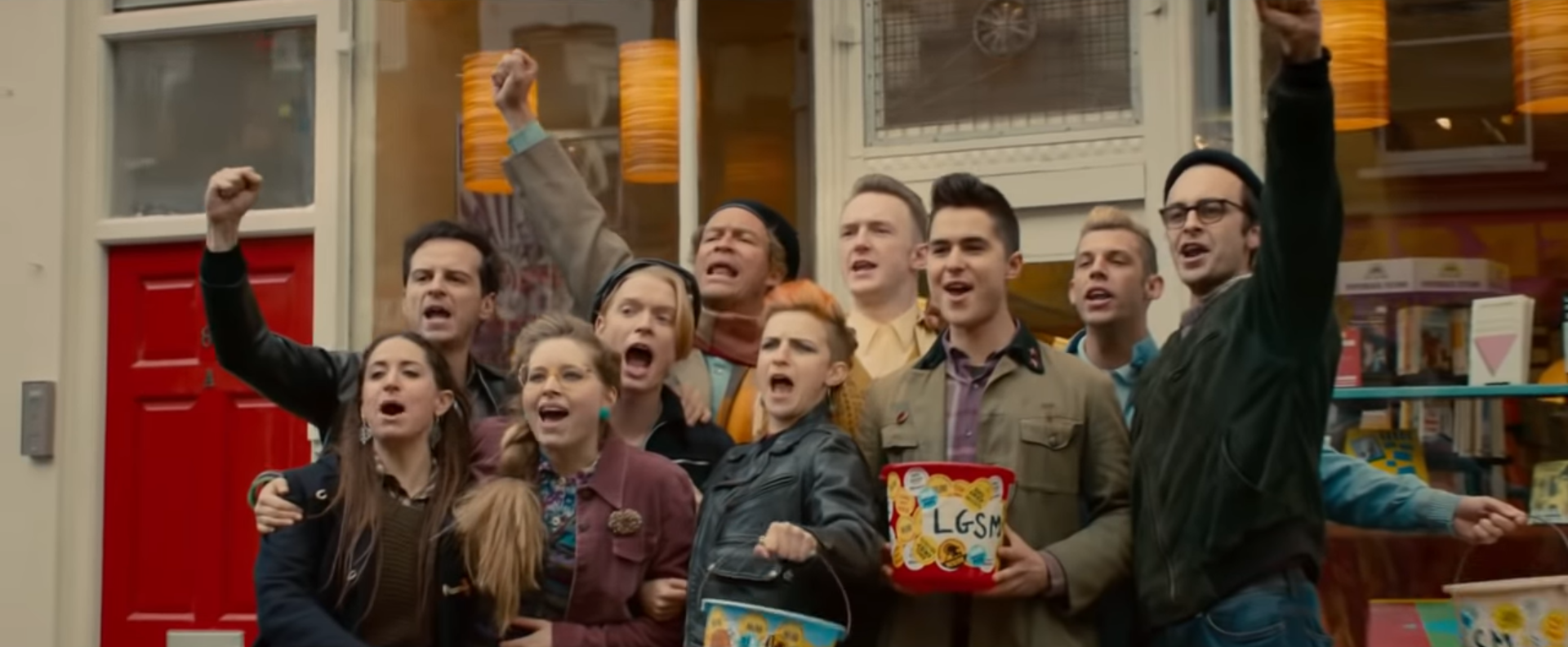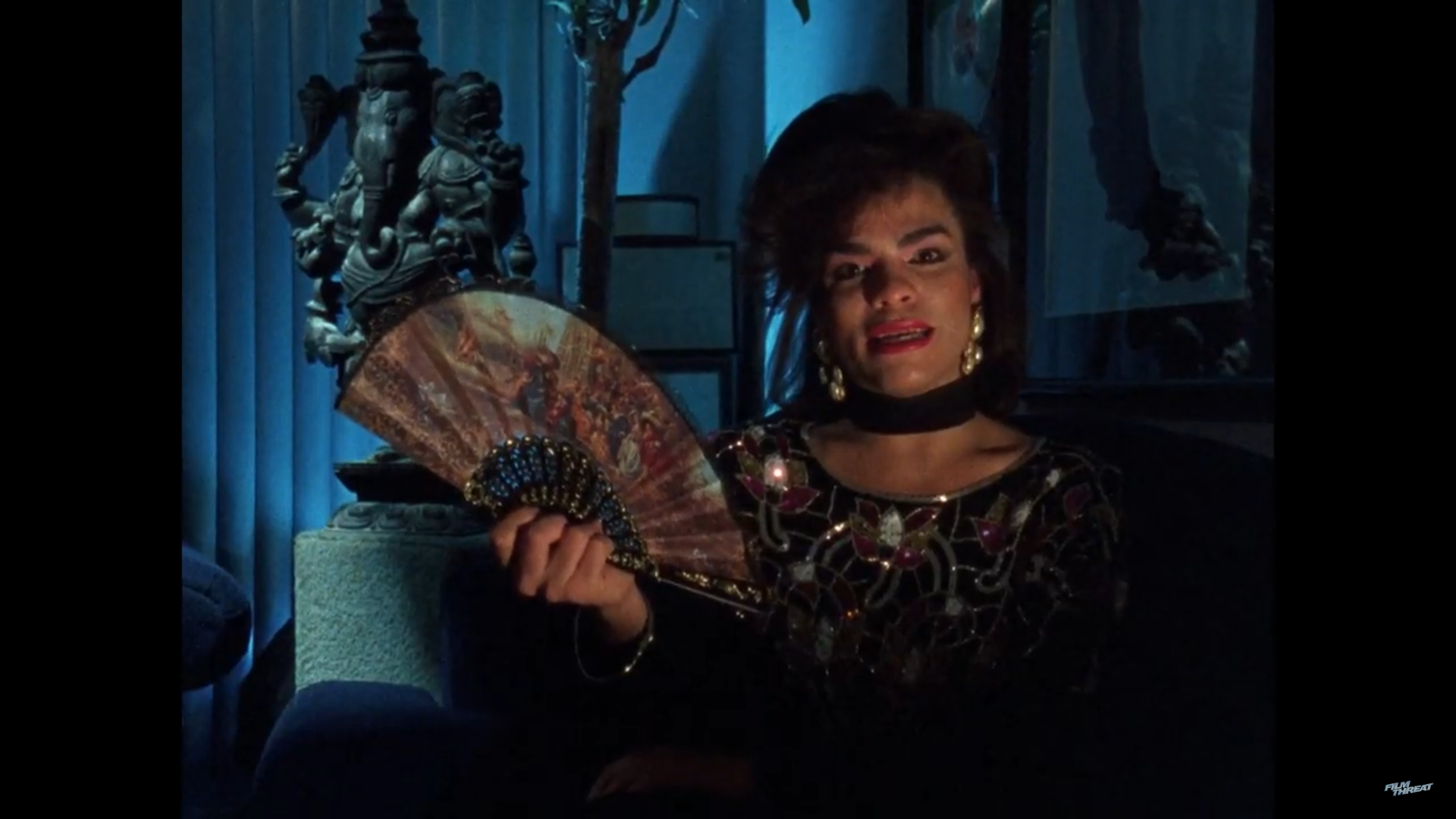
10 films LGBTQ+ Lancs students are recommending this Pride Month
Because what else are we going to do in lockdown?
Pride Month is all about celebration. It’s the celebration of queer history, queer people and queer progress. Seeing as Pride marches have been cancelled during national lockdown, we wanted to help people take part in Pride Month as best they could.
LGBTQ+ people don’t always get much representation in cinema, so we like to celebrate when it’s there and, even better, when it’s done well. The Lancaster Tab asked LGBTQ+ students about the best representations in cinema and this is what they had to tell us.
*All names have been changed as they wish to remain anonymous.
Rory, English Literature and Creative Writing – Pride (2014)

Quite possibly one of the best feel-good films ever to grace our screens and we truly do not deserve how adorable this is. This is a comedy-drama following the true story of how a small group of lesbian and gay activists raised money to help the families affected by the miners’ strikes in 1984. It features Andrew Scott, Bill Nighy and that woman who played Professor Umbridge in the Harry Potter films (only she’s nice in this one).
“This is my feel good go-to. I cannot even describe how emotional this film makes me. It is so so good and empowering. By the end, I’m in absolute tears but I want to grab a flag and march to the nearest pride rally.”
Amber, English Literature – But I’m a Cheerleader (1999)

This satirical rom-com is brought to you in all the glory of 90s drag glam. Natasha Lyonne (from Orange is the New Black) stars as a high-school cheerleader who is sent to a gay conversion camp by her parents where she discovers her sexual identity and herself. The film explores the social construction of gender roles and uses incredible set designs and costumes to do it. Seeing all the extravagance and glam, it will be no surprise to the viewer when Ru Paul walks onto screen.
“I’m not usually a fan of the gaudy satirical stuff but this was amazing. It’s so laugh out loud funny and it just mocks conversion therapy camps which is fantastic, especially in the 90s when there was still very mixed opinions on them.”
Ti, Economics & Sophie, English Language – The Miseducation of Cameron Post (2018)

Set in 1993, The Miseducation of Cameron Post is a less comedic exploration of gay conversion centres in America. The main character, Cameron (Chloë Grace Mortez), is sent to a camp called God’s Promise, where she sees first-hand the psychological damage of LGBTQ+ conversion therapy.
“I had actual goosebumps watching Chloë Grace Mortez in what is probably her best role. It captures the struggles I experienced as a young gay woman – from the self-hatred to that anger at the world.
“There is a Native American two-spirit character” (an umbrella term used by some Indigenous North Americans to describe Native people fulfilling a traditional third-gender or gender-variant role in the community) “who hurts themself in this film and I think it’s the first time I ever saw gender dismorphia presented on the screen.”
Dan, Mathematics – Alex Strangelove (2018)

The Netflix rom-com Alex Truelove follows a high school student as he navigates the modern world of sexuality and gender identity after he meets an openly gay teenager who makes him have second thoughts about his initial plan to lose his virginity to his girlfriend.
“While the title is a little problematic, I really vibe with the sentiment of this film. The fact that it is so so present as well, with genuine current references instead of just rehashing the same-old stories of gay struggles. Also, the final video at the end (with all the YouTube videos of teenagers coming out) was totally authentic. They’re all real videos of real teens and that just made me sob. I love it. It felt so close to the community.”
Sophie, English Language – The Death and Life of Marsha P. Johnson (2017)

Marsha P. Johnson was the self-described “street queen” of New York’s gay ghetto and founded the Transvestites Action Revolutionaries. In 1992, her body was found in the Hudson River and her death written off as suicide. In this Netflix documentary, trans activist, Victoria Cruz, seeks to find the truth about her death which the LGBTQ+ community has long said was clearly murder.
“When the documentary plays clips from Marsha’s speeches and the LGBTQ+ rallies, it’s one of those things that makes your heart swell and your eyes tear up. The legal system has a habit of letting the murders of trans people go uninvestigated so it’s fantastic to see a high profile case receive attention again.”
Lucy, English Literature and French – The Happy Prince (2018)

Based on the life of Oscar Wilde, this film stars Rupert Everett, Colin Firth and Colin Morgan (Merlin). Wilde, author of The Picture of Dorian Gray and many poems, was sentenced to two years in prison for homosexuality and eventually died from complications due to his poor treatment there. In 2017, he was one of 50,000 men pardoned, after death, for homosexual acts that were no longer considered offences.
“There is such a great sadness to the life of Oscar Wilde that I think Rupert Everett gets so right in this film. It’s painful to watch and remember that that used to happen to gay men across the country but it’s something you have to watch to get that insight into the history of the LGBTQ+ community.”
Freya, History – The Imitation Game (2014)

Alan Turing was a genius code-breaker in the Second World War who was hired onto the cryptography team to analyse the Nazi’s Enigma machine, being used to send coded messages. He built a machine to decrypt the messages and historians estimate he shortened the war by more than two years, saving 14 million lives. In the 1950s, he was convicted of gross indecency (the same charge as Oscar Wilde). After a year of government-mandated chemical castration, he committed suicide. His work, however, inspired what scientists called ‘Turing Machines’ and what we call today, computers.
“Not only is this a stunning performance of one of the most important men in WW2 but it also portrays him as autistic – which experts have agreed he was. That is so fantastic to see gay autism in a film like this! It’s so important to get autistic representation out there and I am so glad that Benedict Cumberbatch did it justice because too often films sacrifice one minority trait for another.”
Eli, Computer Science – Boys Don’t Cry (1999)

This is a film based on the real-life story of Brandon Teena, a trans man who was killed in a horrific hate crime. The director, Kimberly Peirce, spent five years researching and working on a screenplay after she read about the case, taking dialogue directly from archive footage in the 1998 documentary. Peirce was outspoken in her admiration of Brandon, especially “the fact that he did it with no role models.”
“The main character is played by a cis woman (which is not great) but for the 90s, it was such a progressive film. It is absolutely heart-breaking and I struggled to watch it but it’s worth it for the way it changes your outlook. What Brandon experiences is difficult to hear about, let alone see on film, but it is so important to bear witness considering the police at the time didn’t.”
Em, Fine Art – TRANSFINITE (2019)

This sci-fi film was directed by non-binary, Indian filmmaker, Neelu Bhuman. It’s a trippy composition of seven stories written by seven trans and queer writers, featuring LGBTQ+ people from different cultures with supernatural powers that they use to love, protect, teach, fight and thrive. It uses poetry, visual effects and animation to throw the viewer completely off balance and then bring them back to the heart of the story, which is an inner power.
“This is absolute chaos. I loved it.”
Nicole, Law – Paris is Burning (1990)

This documentary of the Golden Age of drag balls recounts the African-American and Latino queer communities in New York. It was born when director, Livingston, met two young men in Washington Square Park using slang she had never heard before. She asked what they were doing and was introduced to ‘voguing’. The inspiration for so many of Ru Paul Drag Race’s catchphrases comes from the community seen in this film and it has that same sense of glam and awe.
“To see the drag community in all its glory was fascinating. It makes you remember that it’s so much older than we give it credit for.”
And if you get through all of those, Netflix has a ‘Celebrate Pride Month’ category you can search under now. You’re welcome.
Recommended articles by this writer:
We spoke to Lancs LGBTQ+ students about what pride month means to them
These 16 books, docs and podcasts will help you educate yourself on LGBTQ+









































